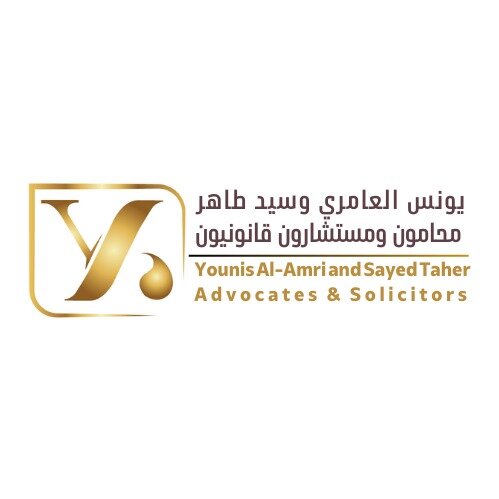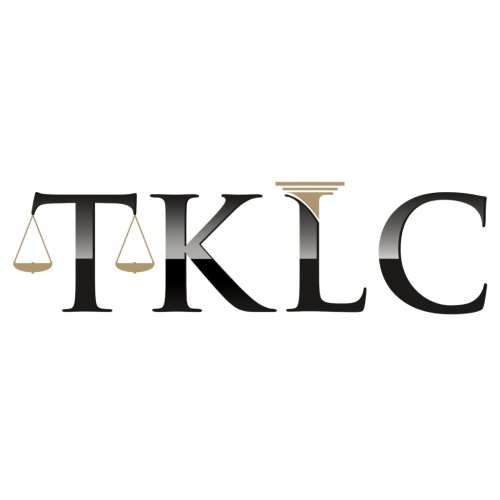Best Renewable & Alternative Energy Lawyers in Oman
Share your needs with us, get contacted by law firms.
Free. Takes 2 min.
Or refine your search by selecting a city:
List of the best lawyers in Oman
About Renewable & Alternative Energy Law in Oman
Oman is steadily advancing its commitment to renewable and alternative energy as part of its Vision 2040 strategy to diversify the economy and reduce reliance on oil and gas. Renewable and alternative energy law in Oman centers around the policies, regulations, and legal frameworks that support the adoption, development, and integration of clean energy sources such as solar, wind, and waste-to-energy. The government encourages private sector participation and foreign investment, with the aim to foster sustainable growth and a greener future.
Why You May Need a Lawyer
Whether you are a business, investor, landowner, or developer, there are several scenarios in which you may require legal expertise related to renewable and alternative energy in Oman:
- Advising on project compliance with local laws and regulations
- Drafting and negotiating Power Purchase Agreements (PPAs) and other contracts
- Assisting with licensing, permits, and approval processes
- Representing clients in negotiations with government authorities or utilities
- Resolving land use issues or disputes related to renewable energy sites
- Structuring joint ventures or partnerships for energy projects
- Protecting intellectual property arising from innovative technologies
An experienced lawyer can help mitigate risks, ensure smooth project delivery, and resolve regulatory or contractual challenges.
Local Laws Overview
Oman’s renewable and alternative energy sector is governed by several key laws and regulations:
- Electricity Law (Royal Decree 78/2004): Establishes the legal framework for the generation, transmission, and distribution of electricity, including renewable energy.
- Authority for Public Services Regulation (APSR): Formerly known as the Authority for Electricity Regulation, APSR is the main regulatory body overseeing electricity and renewable energy projects.
- Net Metering Regulations: Allow small-scale solar PV systems to supply excess energy back to the grid, benefitting from cost savings.
- Project Tenders and Independent Power Producer (IPP) Laws: Regulate the participation of private entities in developing large-scale renewable energy projects.
- Permits and Environmental Approvals: Projects require clearances from environmental, municipal, and planning authorities before commencement.
Oman is also enacting incentives and support schemes to promote investment and technology transfer in renewables. Understanding these legal requirements is crucial to operating successfully in this sector.
Frequently Asked Questions
What types of renewable energy are most prominent in Oman?
The most prominent sources are solar and wind energy. Oman’s climate offers a high solar irradiation rate, making solar energy particularly viable. The country also has significant potential for wind energy, especially in southern regions.
Can foreign companies invest in renewable energy projects in Oman?
Yes, Oman encourages foreign investment in the renewable energy sector. However, there are specific legal and procedural requirements regarding registration, licensing, and compliance with Omani regulations.
What permits are needed to start a renewable energy project?
Typical requirements include a generation license from APSR, environmental permits, municipal approvals, and, for larger projects, adherence to tendering regulations.
Is net metering available for homeowners and businesses?
Yes, Oman allows net metering for eligible solar PV installations, enabling customers to offset their electricity bills by exporting surplus power to the grid.
Are there any government incentives for renewable energy development?
The government has implemented several incentives, including streamlined licensing processes, land allocation, and support frameworks for independent power producers. These incentives are evolving as the market grows.
How are disputes related to renewable energy projects resolved?
Disputes may be resolved through negotiation, mediation, or, if necessary, litigation in Omani courts or arbitration, depending on what is stipulated in relevant contracts.
What environmental regulations must renewable energy projects comply with?
Projects must undergo environmental impact assessments and receive approval from the Environment Authority. Continuous compliance with environmental standards is mandatory.
Can landowners lease or sell their land for renewable energy projects?
Yes, landowners can enter into lease or sale agreements with developers. Legal advice is essential to ensure clear terms and compliance with local property and planning laws.
What role does APSR play in renewable energy oversight?
APSR regulates all aspects of electricity generation, distribution, and supply in Oman, including renewable energy, and issues licenses, enforces standards, and ensures sector compliance.
What is an Independent Power Producer (IPP) project?
An IPP is a privately developed, owned, and operated energy project that sells power to the national grid, typically under a long-term Power Purchase Agreement with the utility company or government.
Additional Resources
For more information or official guidance, the following organizations and resources are instrumental in Oman’s renewable energy sector:
- Authority for Public Services Regulation (APSR): Main regulator for energy, including renewables.
- Ministry of Energy and Minerals: Responsible for policy development, planning, and strategic oversight of energy sectors.
- Environment Authority: Manages environmental permits and impact assessments for projects.
- Oman Power and Water Procurement Company (OPWP): Oversees procurement of electricity from independent producers.
- Oman Chamber of Commerce and Industry: Provides information and support for businesses seeking to invest in the sector.
Next Steps
If you are considering entering the renewable and alternative energy market in Oman, or if you need guidance on regulatory, contractual, or litigation matters, here are some practical steps:
- Clearly define your project idea or legal issue
- Gather relevant documents such as land titles, contracts, and correspondence with authorities
- Research and select a law firm or legal advisor with expertise in Omani renewable energy law
- Schedule an initial consultation to assess your options and risks
- Work with your legal advisor to develop a compliance plan and ensure all required permits or agreements are in place
- Maintain regular updates with your advisor as regulations evolve and your project progresses
Professional legal advice is essential for navigating the complexities of Oman's renewable and alternative energy sector, ensuring your interests are protected every step of the way.
Lawzana helps you find the best lawyers and law firms in Oman through a curated and pre-screened list of qualified legal professionals. Our platform offers rankings and detailed profiles of attorneys and law firms, allowing you to compare based on practice areas, including Renewable & Alternative Energy, experience, and client feedback.
Each profile includes a description of the firm's areas of practice, client reviews, team members and partners, year of establishment, spoken languages, office locations, contact information, social media presence, and any published articles or resources. Most firms on our platform speak English and are experienced in both local and international legal matters.
Get a quote from top-rated law firms in Oman — quickly, securely, and without unnecessary hassle.
Disclaimer:
The information provided on this page is for general informational purposes only and does not constitute legal advice. While we strive to ensure the accuracy and relevance of the content, legal information may change over time, and interpretations of the law can vary. You should always consult with a qualified legal professional for advice specific to your situation.
We disclaim all liability for actions taken or not taken based on the content of this page. If you believe any information is incorrect or outdated, please contact us, and we will review and update it where appropriate.
Browse renewable & alternative energy law firms by city in Oman
Refine your search by selecting a city.

















